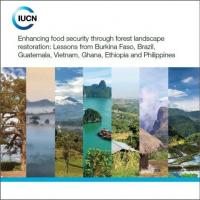Background document on guidance to corporates on the practical application of the CFS Voluntary Guidelines on Land Tenure (VGGT)
The objective of this document is to guide the corporates and investors understand how to respect peoples’ ’‘tenure rights to land, fisheries and forest”,and ensure that communities have access to remedies ‘acceptable to both parties’ when such rights are impinged or such potential is recognized.










